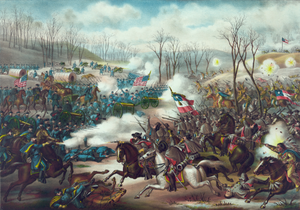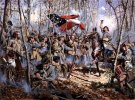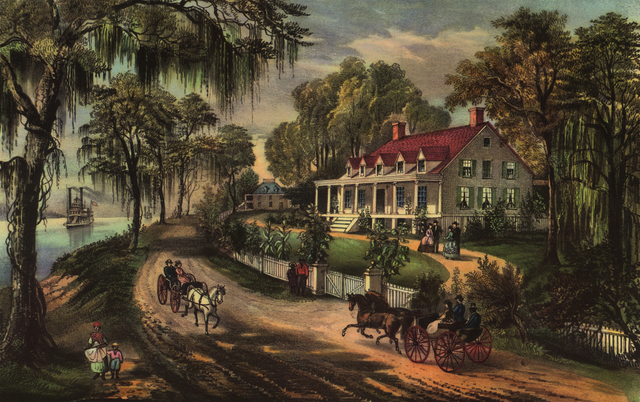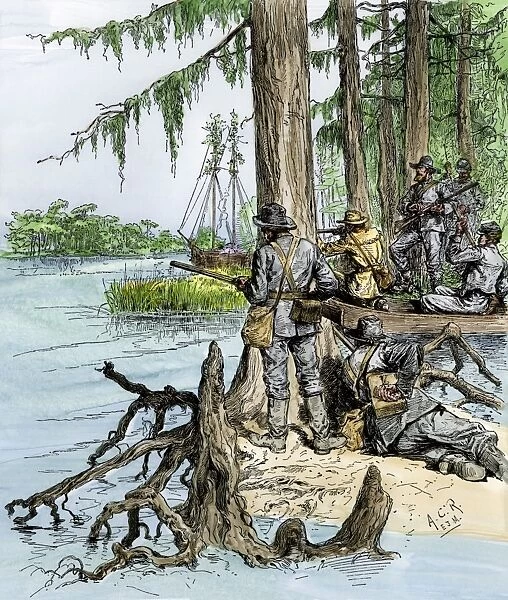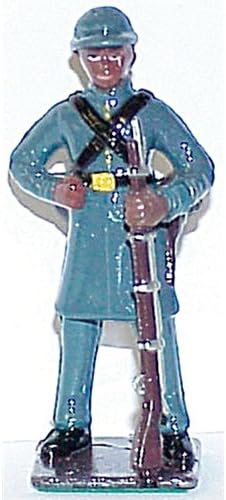The introduction and How Lincoln could restart his war of northern Aggression after the capture of Washington thanks to President Cobb and General Lee
JWQ
Banned
Before I would Like to begin with a few major points in the timeline including a defense of its historical possibility. The past thread Was not as organized and this is the continuation of the timeline.
0. NYC Mayor Fernando Wood indeed did try to separate from the union OTL Considering NYC ties to the south provided Lincoln never receives his bloody justification against an attack on Fort Sumter it perhaps could have separated Its not illogical like you perhaps assume it is. It would have to have help from the Confederate secret service and the corrupt nature of Mayor Wood would use massive bribery and other corrupt measures to convince the city council to declare new york city a free city-state City of Tri-Insula separate from new york state. Governor Horatio Seymour would have Promised a normal relationship with the city and new york will refuse to send troops to suppress the city. (of free trade) Once the rebellion was declared the city rejoins the union but after the CSA victory at Manasses the City officially succeeds from the union and enjoys an armistice with the city once again prospering with cooperhead forces guarding the cities defenses

The ever-busy ducks of new York city prospering under Mayor Woods Free trade Policy

The Union legislation of the federal government gathers to vote on a peace treaty recognizing and guaranteeing confederate independence from the union.
Politicians gather preparing to vote for the treaty that will finally end the war. The hammer is banged decreeing Congress is now In session subject overriding lincoln veto treaty with the confederacy will be voted upon. The congressman Vote on the issue of independence with a disproving Lincoln giving the secret signal wearing his hat. The man sees the signal and sends the message to the union officer in blue. The officer with his men patrolling the street of Philadelphia hardly an assuming sight in the year 1862 stops and reads the military order. All right boys let's go! as he shows the order out loud. Men what you are to embark upon is something that has already been done when we were in Maryland might I remember we were handpicked for this opportunity. Forward march! The union soldier marches closer to the capital of independence Hall to the hearing of many unsuspected congressmen currently voting. Union soldiers entered the room with fixed bayonets with their knives and swords handy as well. A union republican officer gives interrupts the voting processions to give an issue of importance. The speaker alright spit it out, son! We have a warrant for the Arrest (The officer gives a list of copperheads charged with treason including a few pro confederate southern politicians. A Senator draws his dulling pistol stay back I'm not guilty of anything other than free speech in what authority to you have to arrest me? The officer replies these guns tell we do present arms! The soldiers gather with the politicians charged with treason. And shouts back You may proceed then. The voting becomes final The Veto was not overturned and Soldiers capturing many of the most stubborn opinions against Lincoln's grab for power and the Union war machine. With the veto finalized Lincoln proceedings.
In turn, Lincoln Declares reissuing that forces will be used to end the rebellion ( continuation of hostilities) as the treasonous opposition has been checked and dealt with.
0. NYC Mayor Fernando Wood indeed did try to separate from the union OTL Considering NYC ties to the south provided Lincoln never receives his bloody justification against an attack on Fort Sumter it perhaps could have separated Its not illogical like you perhaps assume it is. It would have to have help from the Confederate secret service and the corrupt nature of Mayor Wood would use massive bribery and other corrupt measures to convince the city council to declare new york city a free city-state City of Tri-Insula separate from new york state. Governor Horatio Seymour would have Promised a normal relationship with the city and new york will refuse to send troops to suppress the city. (of free trade) Once the rebellion was declared the city rejoins the union but after the CSA victory at Manasses the City officially succeeds from the union and enjoys an armistice with the city once again prospering with cooperhead forces guarding the cities defenses
The ever-busy ducks of new York city prospering under Mayor Woods Free trade Policy
- Before George B Mecclian was given the command of The army of the potamic making the city's defenses impregnable with fortifications by 1862. At the time of the battle of Bull run the only fort to speak of was fort Washington. The defenses were light to speak of by the time the battle of the bull run occurred.
- Had General Lee perhaps commanded the troops instead of Beaugard (who almost lost the battle, because he was a bad field commander )General Lee is probably a significantly better field commander could likely have kept his soldiers better organized, better trained, and possibly even inspire troops where they normally would not go. I mean to say the confederate would have truly been able to harvest the fruits of this victory by capturing the city itself within a week only after they captured many of McDowell's troops during the great skedaddle. Before the battle of bull run, President Cobb appoints General Brag in charge of the army training program making raw volunteers into well-disciplined professional soldiers.
- In my timeline, the confederates choose not to fire the first shots under a competent administration under president Cobb for a while The south loses as the upper south doesn't enter, and Lee reluctantly accepts the rank of major general. However, because Lincoln is seen as a bully provoking then finally invading fellow Americans recruitment isn't as plentiful with most of the union ranks from New England, the upper midwest, Upstate new york, The CSA secret service could possibly do much damage to the union war machine even before it starts.
- Spain in reality sympathized with the confederacy and had even flirted with intervention to take revenge on the united states. However, Spain also knew that the southerners lusted their Caribbean empire,but hatred and the desire for revenge was much greater as well.Still to split the countries in 2 would hurt both sections possibly preventing both forever stealing Cuba from the Spanish empire. Spain is seeking to rebuild its military imperial might with war and this could be just what Spain wants. In my timeline after the confederates lose battle after battle against union general lee the CSA congress sign a treaty guarantying Cuba will be left alone in exchange, Spain has to be a worthwhile Allie against the union. The upper south officially joins on the side of the confederates after Lincoln illegally suspends the Lincoln suspended the writ of habeas corpus due to partisan fighting Bringing the upper south into the confederacy allowing lee to switch sides along with most of his southern troops.
- An armistice is declared after the confederates capture the capital and parts of Maryland and return the captured politicians and soldiers in exchange for an armistice and negotiations to the war ending.
The Armistice between the 2 armies building up their armies near across the Potamic river and near the borderline

President Lincoln in tears that the confederacy has rejected the possibility of rejoining the union under his terms Ponders how will the war continue then? the senate is already debating a treaty to allow there their separation and we are on the verge of bankruptcy because of new york city not paying tariffs. Spain is landing troops to defend the confederacy in the thousands. What to do? Lincoln hears receives an idea that will prolong the war that will save the union our founding fathers envisioned.
1862 January Philadelphia makeshift Union capital
1862 January Philadelphia makeshift Union capital
The Union legislation of the federal government gathers to vote on a peace treaty recognizing and guaranteeing confederate independence from the union.
Politicians gather preparing to vote for the treaty that will finally end the war. The hammer is banged decreeing Congress is now In session subject overriding lincoln veto treaty with the confederacy will be voted upon. The congressman Vote on the issue of independence with a disproving Lincoln giving the secret signal wearing his hat. The man sees the signal and sends the message to the union officer in blue. The officer with his men patrolling the street of Philadelphia hardly an assuming sight in the year 1862 stops and reads the military order. All right boys let's go! as he shows the order out loud. Men what you are to embark upon is something that has already been done when we were in Maryland might I remember we were handpicked for this opportunity. Forward march! The union soldier marches closer to the capital of independence Hall to the hearing of many unsuspected congressmen currently voting. Union soldiers entered the room with fixed bayonets with their knives and swords handy as well. A union republican officer gives interrupts the voting processions to give an issue of importance. The speaker alright spit it out, son! We have a warrant for the Arrest (The officer gives a list of copperheads charged with treason including a few pro confederate southern politicians. A Senator draws his dulling pistol stay back I'm not guilty of anything other than free speech in what authority to you have to arrest me? The officer replies these guns tell we do present arms! The soldiers gather with the politicians charged with treason. And shouts back You may proceed then. The voting becomes final The Veto was not overturned and Soldiers capturing many of the most stubborn opinions against Lincoln's grab for power and the Union war machine. With the veto finalized Lincoln proceedings.
In turn, Lincoln Declares reissuing that forces will be used to end the rebellion ( continuation of hostilities) as the treasonous opposition has been checked and dealt with.
- Lincoln Illegally suspended Habous corpus under the executive order which is illegal and unconstitutional
Last edited:
